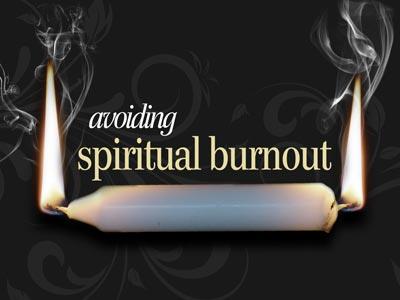-
From Grief To Recovery
Contributed by Dana Chau on Nov 28, 2017 (message contributor)
Summary: Discover and apply for yourself God’s guidance for Nehemiah’s journey from grief to recovery
Jesus Christ said, "Come to me, all you who are weary and burdened, and I will give you rest (Matthew 11:28)."
For the first time, people in America have felt the terror that the Israeli people feel almost daily from the work of terrorists. Because the horrific tragedy of this week is not a common experience for Americans, many people are not able to cope with such acts of violence and massive numbers of deaths.
As a minister of the Gospel of Jesus Christ, it is my privilege to offer words of truth and comfort from the God of truth and comfort. You will not hear a rehashing or an interpretation of this week’s news. If your heart is open, this morning’s teaching from God’s Word will penetrate and bring healing to your soul.
You will walk away this morning with emotional, spiritual and practical help from the wisdom that comes from God’s Word, the Bible. The section of God’s Word for this morning comes from the book of Nehemiah 1:1-2:8. The name "Nehemiah" means "the comfort of Yahweh" or "God has comforted." As you listen, you will discover and apply God’s guidance in Nehemiah’s journey from grief to recovery.
If you want to move from grief to recovery, you need to respond to pain, to God and to opportunities. These are the three steps to ensure that you do not get stuck in the grief but move toward recovery.
FIRST, we move from grief to recovery by responding to our pain. We read this in Nehemiah 1:4.
Nehemiah, if you read the rest of the story, was no wimp. He was a great leader whom God used to rebuild the walls of Jerusalem. Yet, he responded to the pain of the situation. The walls of Jerusalem had been destroyed by Nebuchadnezzar, and without repair, Jerusalem would be vulnerable to her enemies and would be disgraced.
Nehemiah didn’t just stuff his emotions and planned the rebuilding of the walls. He responded to the pain; his legs grew weak. He had to sit down. He wept. He mourned. He fasted, and he prayed. In our eyes, that could be seen as weakness. But in God’s wisdom, responding to the pain is absolutely necessary.
Folks who do not respond to the pain, but try to stuff their emotions will find that the emotions will erupt like a volcano during the most unexpected times. If you’ve been more irritable this week than usual, you’ve not had the needed time to deal with your pain. Let me identify some common responses to tragedy.
First, when we face tragedy, we are shocked or numbed by the horror. The word "surreal" was used repeated in newspapers and talk shows throughout this week. Some of us still cannot believe what has taken place is real.
Second, when we face tragedy, we experience anger outwardly. We clench our teeth or our fist. We want to find something or someone to kick. We need to be careful that we don’t do anything to hurt ourselves or hurt others. God permits anger, but not wrongdoing.
Third, we experience anger inwardly. We find there is little we can do with our anger, and depression can set in. When we get done this morning, you will learn of ways to channel your anger away from depression by responding to opportunities.
Fourth, we experience bargaining. We wish we could have done something to prevent the tragedy, and some of us might even begin to blame those who were not involved. We need to be careful that we do not take out our anger on all Muslims and those who are Arabic or Middle-Eastern in appearance. United States has made such a tragic mistake with the Japanese people in the past.
Fifth, we experience sadness. The wear and tear on our emotions and our gradual acceptance of the pain often results in sadness. This is normal.
Sixth, we move toward resolution, acceptance and forgiveness. All of us can reach this stage through responding to the pain, to God and to opportunities over time. We will talk more about this in detail.
Maybe you can identify where you are at this point? Are you still in shock? Are you angry and wanting to do something about it? Are you depressed? Are you bargaining? Are you sad? Have you accepted what has happened and forgiven those involved?
Only those who have responded to the pain can move ahead. And you can only respond to the pain when you know what you are feeling. Are you feeling violated? Are you feeling powerless? Are you grieving because of the loss of a loved one? Are you anxious about the economy? Are you feeling fearful of future attacks?
Take time to identify your feeling and respond to the pain. Cry. Talk with others. Pray. Go to the gym and work off your anger. Don’t stuff your pain. If you’ve had to carry on at work at the usual pace, and you’ve not had time to let the pain have its way with you, don’t be surprised that you will take longer to move through the stages of grief. Respond to your pain without hurting yourself or others.

 Sermon Central
Sermon Central



